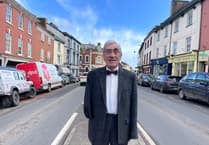He told of his family's small beginnings in the 1800s, rising to the huge company it is today. The Cadbury family, being Quakers, were sometimes excluded from the major professions in those times, being unable to attend universities to gain degrees and qualifications. They therefore became what today may be termed self-made men. Members also learned something of the evolvement, first of cocoa and later hard chocolate, and also its development during various crisis periods, notably the two world wars. Bournville came about when the firm's premises in Birmingham became too small. When a factory was built outside the city the need to house the workforce locally arose. The area was developed sympathetically and always with the needs of the employees in mind. Recreation was not forgotten so play areas and further education were both catered for. Mr Cadbury referred to their competitors, Fry's and Rowntree's – also Quaker family firms – and said that although in competition they also shared knowledge and, indeed, there was sometimes a crossover of both management and staff between them. After the talk, there were many questions. A vote of thanks was given and there were chocolates to sample. The group competition was for a collage based on a Devon town or village, together with an object associated with it, and a vase of spring flowers. Two judges took on the task and decided on Liverton, who had chosen to depict the ancient town of Totnes, with a small model of Team Philips to accompany it. So the hosts were the winners and president Aileen Carrett received the Rose Bowl, which was presented by Linda Morris, one of the judges. Runner-up Haytor had strayed only as far as Widecombe and had a paperweight depicting the church, made from recycled lead from the church roof, as their piece. Both Manaton and Bovey had portrayed their own areas. An excellent tea was provided and a raffle with several prizes ended the afternoon.



